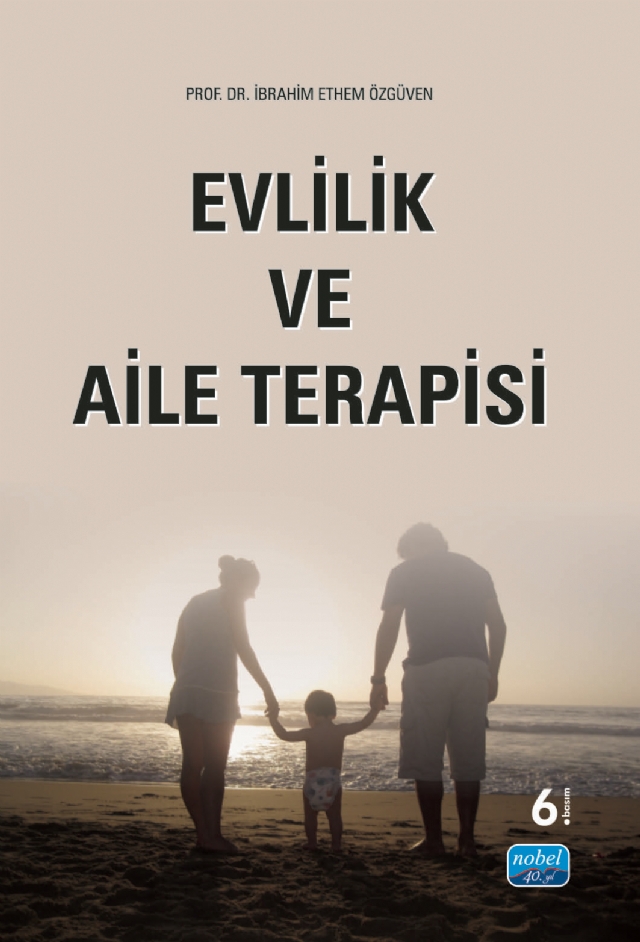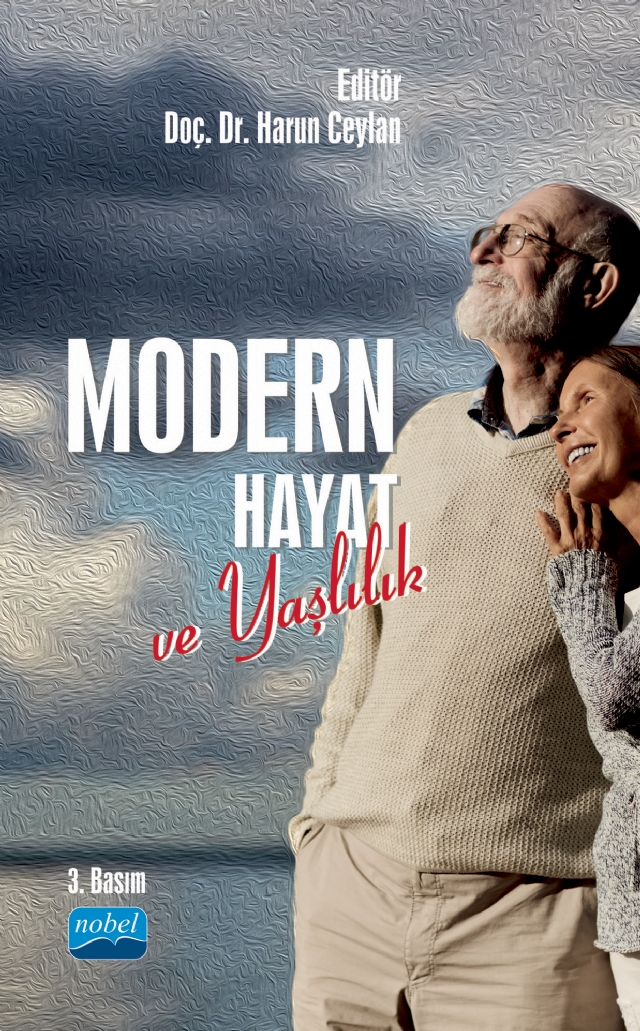Social Service \ 1-1

A psychological guide to living with Alzheimer's, this book aims to help caregivers of patients with Alzheimer's and other types of dementia.
Unlike other books written on the subject, it looks at the subject from the family side. To the patient's family members as well as the patient; It draws attention to spouses, children, grandchildren and changes in their lives. While revealing the difficulties of living with an Alzheimer's patient, it also offers practical solutions for the difficulties encountered.
Written by an experienced psychologist who has specialized in this field and conducted clinical studies for a long time, this book meets the important needs of families with both theoretical knowledge and practical applications.
This book, where you will find a lot of useful information from what kind of a disease it is and how it progresses, from what awaits the family in this process to how to solve common problems, from what activities to do to protect cognitive abilities and how children will be affected by this process, this book offers an answer to an increasingly important need in the field.
Unlike other books written on the subject, it looks at the subject from the family side. To the patient's family members as well as the patient; It draws attention to spouses, children, grandchildren and changes in their lives. While revealing the difficulties of living with an Alzheimer's patient, it also offers practical solutions for the difficulties encountered.
Written by an experienced psychologist who has specialized in this field and conducted clinical studies for a long time, this book meets the important needs of families with both theoretical knowledge and practical applications.
This book, where you will find a lot of useful information from what kind of a disease it is and how it progresses, from what awaits the family in this process to how to solve common problems, from what activities to do to protect cognitive abilities and how children will be affected by this process, this book offers an answer to an increasingly important need in the field.
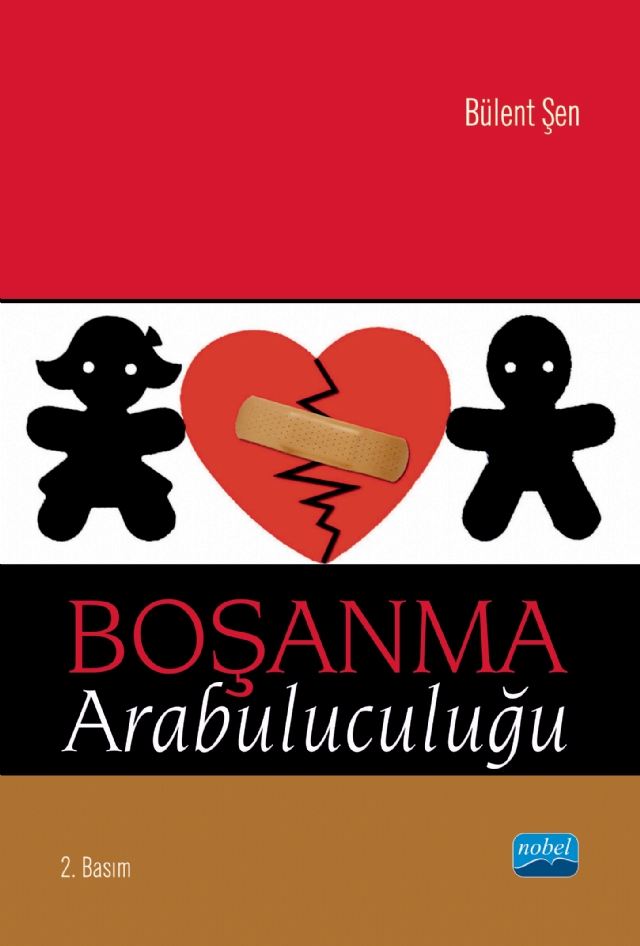
Couples who love each other, dream of growing old together, and after having a child, cannot solve their problems after many unwanted experiences, and perhaps decide to divorce after receiving family counseling; While experiencing the negative processes of divorce, they do not harm each other and their children more in cases where the conditions are made more difficult in the court environment, divorce can be more economical, in a shorter time, with fairer conditions for both parties, both parties and their families can remain friends after the divorce, children can always be It is thought that completing the divorce process by making joint decisions under the supervision of an impartial third person, where they can see both parents regularly and receive support, will contribute positively to both couples and children and society.
In the book, both domestic and international literature and practices have been tried to be presented to the readers with an impartial eye, and they will work on divorce mediation. to academics; to students and practitioners of law, social work, psychology, psychological counseling, sociology, child development, preschool education, family and consumer sciences; to family counselors; to family court judges and experts; To the members of the 2nd Civil Chamber of the Supreme Court; to experts who will conduct legal studies on this subject; it has been tried to give basic information to the managers of the relevant institutions and organizations, to the readers who are curious about the issue of divorce mediation and to the couples who want to get divorced by agreement.
At the end of the book; Family Counselors who have received 450 hours of training in the guidelines issued by the Ministry of Family and Social Policies and have a Family Counseling certificate, and the desire of Lawyers who have received mediation training within the scope of the Mediation Law, to work together and to carry out interdisciplinary and holistic studies on Divorce Mediation, which can set an example for other countries, has been expressed.
In the book, both domestic and international literature and practices have been tried to be presented to the readers with an impartial eye, and they will work on divorce mediation. to academics; to students and practitioners of law, social work, psychology, psychological counseling, sociology, child development, preschool education, family and consumer sciences; to family counselors; to family court judges and experts; To the members of the 2nd Civil Chamber of the Supreme Court; to experts who will conduct legal studies on this subject; it has been tried to give basic information to the managers of the relevant institutions and organizations, to the readers who are curious about the issue of divorce mediation and to the couples who want to get divorced by agreement.
At the end of the book; Family Counselors who have received 450 hours of training in the guidelines issued by the Ministry of Family and Social Policies and have a Family Counseling certificate, and the desire of Lawyers who have received mediation training within the scope of the Mediation Law, to work together and to carry out interdisciplinary and holistic studies on Divorce Mediation, which can set an example for other countries, has been expressed.
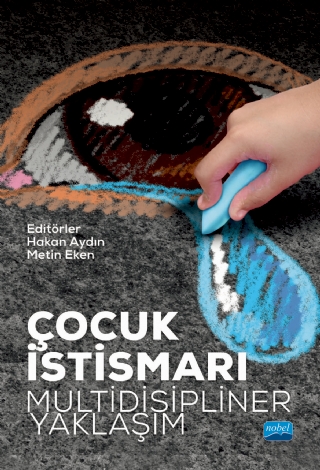
Child abuse is a subject that needs to be studied meticulously in order to be handled with a multidisciplinary approach and to protect the best interests of children. Undoubtedly, the most important contribution to the solution efforts regarding the problem of child abuse will be the attempts to increase scientific and managerial knowledge about this field. The fact that these initiatives include a multidisciplinary approach is of strategic importance considering the extremely limited production in this regard and has the potential to strengthen the search for solutions. Depending on the stated purpose and importance, the ProChild Project has determined as one of its main outputs the production of an edited book, which deals with the problem of child abuse with a multidisciplinary approach. This book; It deals with the problem of child abuse with its knowledge of medicine, education, law and communication, focuses on the problem of representation through the news of child abuse published in internet newspapers, and opens the digital components of child abuse to discussion in detail.

The phenomenon of children in need of protection has existed throughout history. In cases where the care of children cannot be provided by their families and relatives due to poverty, abandonment, finds, death of mother or father, the responsibility of care and supervision of children is fulfilled by public institutions as a public responsibility.
The concept of child protection has undergone serious changes in the modern period. Factors such as neglect and abuse, violence, delinquency and victims of crime have come to the fore in the field of child protection.
Today, the issue of child protection remains on the agenda due to the changes in family and social structure in many countries.
In this book, academics at different universities in Turkey and experts working in practice have examined child protection systems from national and international dimensions.
It is hoped that the book will contribute to the understanding and development of the field of child protection.
The concept of child protection has undergone serious changes in the modern period. Factors such as neglect and abuse, violence, delinquency and victims of crime have come to the fore in the field of child protection.
Today, the issue of child protection remains on the agenda due to the changes in family and social structure in many countries.
In this book, academics at different universities in Turkey and experts working in practice have examined child protection systems from national and international dimensions.
It is hoped that the book will contribute to the understanding and development of the field of child protection.

The book Child and Abuse deals with the issue of child abuse, which is one of the important problems of today's world, which is expected to be solved, with different scientific perspectives. In this direction, it aims to contribute to the correct understanding of the problems by evaluating the issue of abuse from the perspective of different disciplines interested in the subject, while at the same time aiming to draw attention to the diagnosis and solutions of problems related to abuse. Our book, which is contributed by authors from different disciplines who are experts in their fields, stands out as a bedside book that not only professionals dealing with this issue, but also everyone, especially parents, can apply to obtain information on child abuse, a problem that is growing day by day and increasing awareness in the society.

What is social change?
How do societies change?
What are the main theories explaining change?
What are the main dynamics of change in Turkey?
Social change is a fundamental field that concerns all subjects, concepts and theories of sociology. From the beginning to the present, many explanations about change have emerged in the sociology literature. Understanding the accumulation of these explanations is very important for a sociology student. Understanding change is essential for analyzing the workings of society.
Turkey's social structure is in a rapid and permanent change. Comprehensive and sustained research and new perspectives are needed to understand and explain this change. However, social change has not attracted much attention from sociology in Turkey. The number of theoretical studies, conceptual studies and empirical researches in the field is very few. This work in your hand was written within the scope of Social Structure Research Program to fill such a gap.
This book, which consists of 16 chapters, examines the concepts, theories and approaches related to change in sociology. The topics covered in this book, which is also designed as a textbook, are handled simply and expanded with examples. With the concept explanations, biographies and reading passages added to the chapters, the flow of the book is tried to be relaxed and different windows are opened in the mind of the reader.
How do societies change?
What are the main theories explaining change?
What are the main dynamics of change in Turkey?
Social change is a fundamental field that concerns all subjects, concepts and theories of sociology. From the beginning to the present, many explanations about change have emerged in the sociology literature. Understanding the accumulation of these explanations is very important for a sociology student. Understanding change is essential for analyzing the workings of society.
Turkey's social structure is in a rapid and permanent change. Comprehensive and sustained research and new perspectives are needed to understand and explain this change. However, social change has not attracted much attention from sociology in Turkey. The number of theoretical studies, conceptual studies and empirical researches in the field is very few. This work in your hand was written within the scope of Social Structure Research Program to fill such a gap.
This book, which consists of 16 chapters, examines the concepts, theories and approaches related to change in sociology. The topics covered in this book, which is also designed as a textbook, are handled simply and expanded with examples. With the concept explanations, biographies and reading passages added to the chapters, the flow of the book is tried to be relaxed and different windows are opened in the mind of the reader.

Institutional social services, which were organized under the umbrella of the Social Services and Child Protection Agency in Turkey until 2011, entered a new organizational process with the formation of the Ministry of Family and Social Policies in 2011. This process it means not only the change in bureaucratic structuring, but also the involvement of actors other than the public in the delivery of social services. These actors; private sector, local governments and non-governmental organizations. Undoubtedly, in this new era, the importance of the family as the main pillar of social solidarity continues.
This book discusses the transformation in social services in the context of different welfare regimes on the axis of disadvantaged groups (children, elderly, disabled, women, immigrants, LGBT individuals, different ethnic-cultural groups, human trafficking victims). Undoubtedly, every disadvantaged group has problems in many areas from employment to increasing the quality of life, education and health services. This study deals with different disadvantaged groups as the main issue of social policy within the framework of the interest of social services and includes specific discussions for each group.
This book discusses the transformation in social services in the context of different welfare regimes on the axis of disadvantaged groups (children, elderly, disabled, women, immigrants, LGBT individuals, different ethnic-cultural groups, human trafficking victims). Undoubtedly, every disadvantaged group has problems in many areas from employment to increasing the quality of life, education and health services. This study deals with different disadvantaged groups as the main issue of social policy within the framework of the interest of social services and includes specific discussions for each group.

Although this work, titled Sociology from Yesterday to Today, has both linguistic problems arising from translation and content problems that do not overlap with the sociological realities of Turkey, it has been prepared as an alternative to many translated books used as textbooks.
This book, which has the content of the "Introduction to Sociology" course given in the sociology departments; It has been written in a comprehensive, detailed, exemplary and visually rich manner and in a simple language. With these aspects, it is a work that can be used by all readers who are interested in sociology as well as academicians and students.
This book, which has the content of the "Introduction to Sociology" course given in the sociology departments; It has been written in a comprehensive, detailed, exemplary and visually rich manner and in a simple language. With these aspects, it is a work that can be used by all readers who are interested in sociology as well as academicians and students.
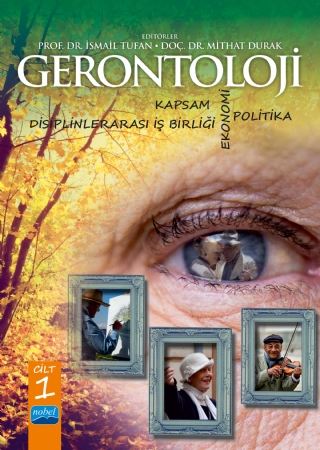
We would not have known the world by recognizing the faces of old age, which has been known for half a century, but considering that every person born under the sun is a world in itself, then knowing how and why we age and what kind of old age awaits us is the same as opening the door to a brand new world.
As we age, we change, and as we change, we change the world together. “Old” is the label. It is not our age that makes us old. Neither aging nor man has a single face. Every person goes from face to face throughout the day. He puts on and takes off his masks. Aging comes to us today with different faces. As we get to know them, we also recognize our aging and old age. Knowing about aging and old age means knowing the person and the age, especially in the age when the life expectancy sees 100 years and hopes that it will go beyond.
Old age doesn't have to be a sad end. As important as believing in destiny is believing that we can change it; that's the real issue. Getting old is our destiny, but changing old age is in our hands. Those who can predict their destiny can change their destiny. Seeing is possible with light. Knowledge is a powerful light. The mighty light of life in youth dazzles the eyes. In old age, however, life becomes more visible as the power of the light of life decreases. Our duty today is to improve the lives of those who can see life, to prepare the conditions for them to see a life full of peace, happiness and meaning.
The book in your hand, which is an encyclopedia, is the result of three years of hard work day and night. We think that you will read the chapters in this two-volume book with great enthusiasm and pleasure, in which the world-renowned and well-known experts in the field of gerontology convey their unique knowledge and experience as the authors of the chapters. In this book, which is prepared in two volumes, the subjects of Gerontology are discussed in a wide range from demography to psychology, from anthropology to sociology, from economics to life and environmental sciences, from education to technology, from politics to social welfare, from biology to psychiatry, from long-term care to preventive health, from nutrition to disability, from family structures to violence against the elderly.
As we age, we change, and as we change, we change the world together. “Old” is the label. It is not our age that makes us old. Neither aging nor man has a single face. Every person goes from face to face throughout the day. He puts on and takes off his masks. Aging comes to us today with different faces. As we get to know them, we also recognize our aging and old age. Knowing about aging and old age means knowing the person and the age, especially in the age when the life expectancy sees 100 years and hopes that it will go beyond.
Old age doesn't have to be a sad end. As important as believing in destiny is believing that we can change it; that's the real issue. Getting old is our destiny, but changing old age is in our hands. Those who can predict their destiny can change their destiny. Seeing is possible with light. Knowledge is a powerful light. The mighty light of life in youth dazzles the eyes. In old age, however, life becomes more visible as the power of the light of life decreases. Our duty today is to improve the lives of those who can see life, to prepare the conditions for them to see a life full of peace, happiness and meaning.
The book in your hand, which is an encyclopedia, is the result of three years of hard work day and night. We think that you will read the chapters in this two-volume book with great enthusiasm and pleasure, in which the world-renowned and well-known experts in the field of gerontology convey their unique knowledge and experience as the authors of the chapters. In this book, which is prepared in two volumes, the subjects of Gerontology are discussed in a wide range from demography to psychology, from anthropology to sociology, from economics to life and environmental sciences, from education to technology, from politics to social welfare, from biology to psychiatry, from long-term care to preventive health, from nutrition to disability, from family structures to violence against the elderly.
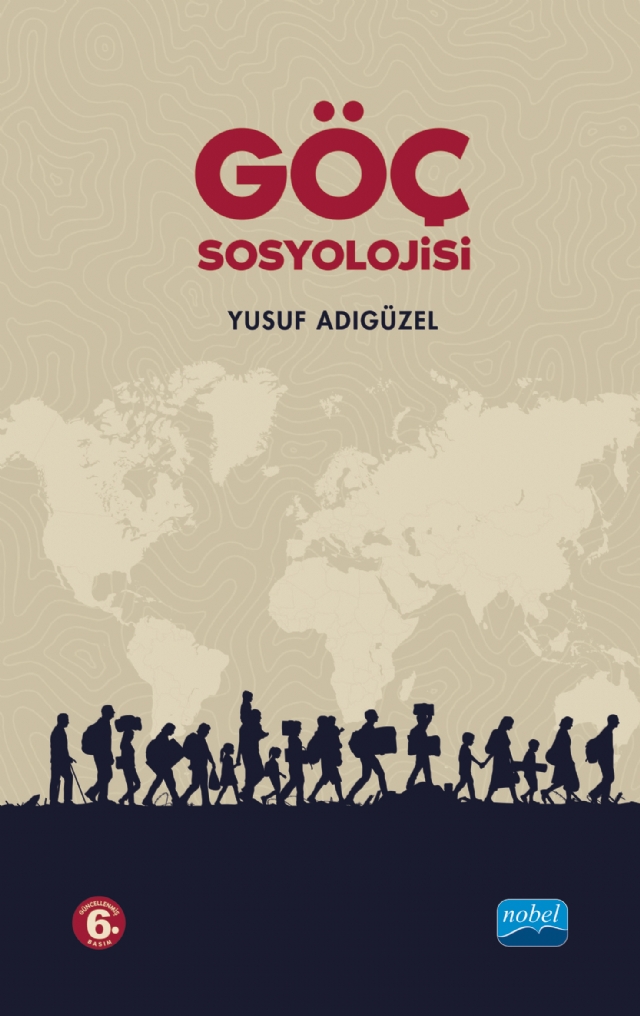
This book, which is an introduction to basic migration issues, made its 5th edition in a short time and became one of the reference works in the field. The Sociology of Migration book aims to focus on the sociological dimensions of migration and its national and international social effects. In the book, firstly, the concepts and theories related to migration are explained, and migration movements are handled with a local to global theme. Internal migration processes in Turkey are evaluated together with the dimensions of urbanization, urbanization and citizenship. Migrations from Turkey to abroad and regular and irregular migrations from abroad to Turkey are examined. Global migrations, migration policies, models of living together, diasporas, return migrations, immigrant solidarity networks, public institutions and NGOs working in the field of migration are also among the topics covered in this book.
Sociology of Migration will be an important reference source for students and academics in all social sciences, especially sociology, law, political science and international relations disciplines of universities.
Sociology of Migration will be an important reference source for students and academics in all social sciences, especially sociology, law, political science and international relations disciplines of universities.
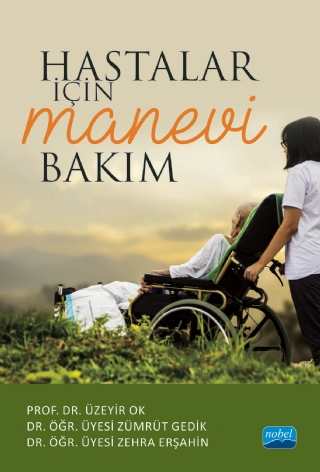
Spiritual care and counseling, which is one of the application areas of the psychology of religion, has a strong potential in human service in different conditions. Religions and spiritual traditions; It is known that they have important roles in coping with the difficulties of life, making sense of life, feeling belonging to a social group, creating an identity and choosing a healthy life for people who belong to them. On the other hand, helping and caring for people living in difficult conditions is a universal human instinct. Helping gratuitously on a voluntary basis is seen as a virtue in almost all life philosophies and religious-spiritual traditions.
In Turkey, studies in the field of spiritual care and counseling, which bring together humanitarian service and religion-spiritualism, have gained momentum in the last 10 years. However, there are very few studies that deal with the subject holistically and in depth and emphasize the scientific basis. This book on spiritual care for the sick in hospitals intends to take existing studies a step further, both in terms of providing an empirical basis and in terms of being dedicated to a particular field.
After explaining the effect of spirituality on human mental and physical health in detail in the book, the spiritual care needs of the patients were compared with the non-sick groups in the study, and the perception levels of the religious officials who still practice spiritual care, their competencies, personality dimensions and field experiences that are effective in their competencies are discussed in depth. In addition to these, in this book, a hospital spiritual care study model has been tried to be created in line with the empirical findings and literature knowledge.
In Turkey, studies in the field of spiritual care and counseling, which bring together humanitarian service and religion-spiritualism, have gained momentum in the last 10 years. However, there are very few studies that deal with the subject holistically and in depth and emphasize the scientific basis. This book on spiritual care for the sick in hospitals intends to take existing studies a step further, both in terms of providing an empirical basis and in terms of being dedicated to a particular field.
After explaining the effect of spirituality on human mental and physical health in detail in the book, the spiritual care needs of the patients were compared with the non-sick groups in the study, and the perception levels of the religious officials who still practice spiritual care, their competencies, personality dimensions and field experiences that are effective in their competencies are discussed in depth. In addition to these, in this book, a hospital spiritual care study model has been tried to be created in line with the empirical findings and literature knowledge.
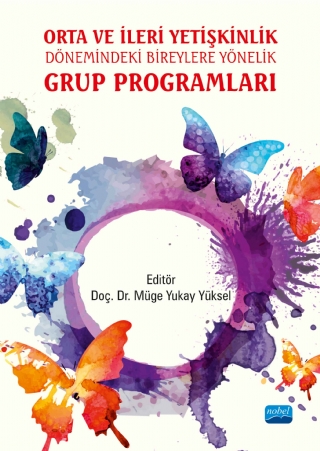
“Group Programs for Intermediate and Advanced Adults” have been prepared for students who are still studying in these fields, as well as psychological counselors, psychologists, sociologists, social workers and medical professionals. The increase in the elderly population has necessitated the diversification of services for this population. Economic, psychological, social and health-related changes and problems in the life of the elderly person affect not only the elderly but also those living with them. As a result, it is necessary to carry out various studies by adopting different approaches to the problems that individuals are likely to encounter from the adult years. Based on this need, in the book "Group Programs for Individuals in Middle and Advanced Adulthood", programs and therapeutic content are planned for solving problems that can be experienced from adulthood on. The book you are reviewing is designed to consist of four functional parts. In the first part of the book, “social issues in middle and advanced adulthood” are mentioned. In this section, sessions that support communication skills, provide informative counseling, psychoeducational, life-cycle-based group therapy, adapt to menopause and andropause period, career planning in advanced adulthood, social life skills after retirement and make effective use of free time are planned. In the second part, group sessions based on cognitive-behavioral, psychoeducational, narrative therapy and mindfulness-based techniques were developed, addressing the process of “adapting to the changing cycle in advanced adulthood” under the headings of adapting to changing roles, empty nest syndrome, adaptation to second marriage, and developing grandparenting skills. In the third part, under the title of “psychological support for special groups in advanced adulthood”, psychological support groups are planned for people who are in need of special care, who are responsible for caring for the disabled and those with Alzheimer's disease, and who have adult patients in intensive care, and it is aimed to protect the mental health of individuals living with these special groups. In the fourth part, group studies supported by cognitive behavioral, expressive, humanistic and spiritual approaches were prepared for individuals who are trying to provide "psychological support to individuals in advanced adulthood" and who are trying to cope with depression, fear of death and the grieving process.
We hope that the “Group Programs for Individuals in Middle and Advanced Adults” book, which is supported by enjoyable and practical exercises, will be a resource that can be easily used by those who volunteer to support individuals in their old age.
We hope that the “Group Programs for Individuals in Middle and Advanced Adults” book, which is supported by enjoyable and practical exercises, will be a resource that can be easily used by those who volunteer to support individuals in their old age.
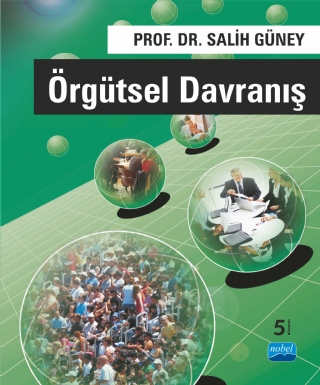
The reality underlying the success of organizations in today's globalization process is organizational internal effectiveness and efficiency. Because in difficult market conditions, organizations can continue their existence as long as they keep efficiency and productivity at high levels. The basic key to bringing efficiency and productivity to the desired levels is to know the "organizational structure" well.
Organizational behavior becoming a scientific discipline is very recent. However, the basic subject of organizational behavior, the human being and his productive work is very old. The interest of all scientists working on the organization has always focused on people and their efficiency.
People take part in an organizational structure at a certain period of their lives. The existence of people in organizational life depends on their success. This is closely related to the personal development of people. In this direction, Behavioral Sciences and Organizational Behavior trainings gain importance.
This book, whose chapter titles and topics were chosen primarily based on the needs of those who aim to be successful in business life, enables individuals to take a closer look at themselves and their business lives.
Organizational behavior becoming a scientific discipline is very recent. However, the basic subject of organizational behavior, the human being and his productive work is very old. The interest of all scientists working on the organization has always focused on people and their efficiency.
People take part in an organizational structure at a certain period of their lives. The existence of people in organizational life depends on their success. This is closely related to the personal development of people. In this direction, Behavioral Sciences and Organizational Behavior trainings gain importance.
This book, whose chapter titles and topics were chosen primarily based on the needs of those who aim to be successful in business life, enables individuals to take a closer look at themselves and their business lives.
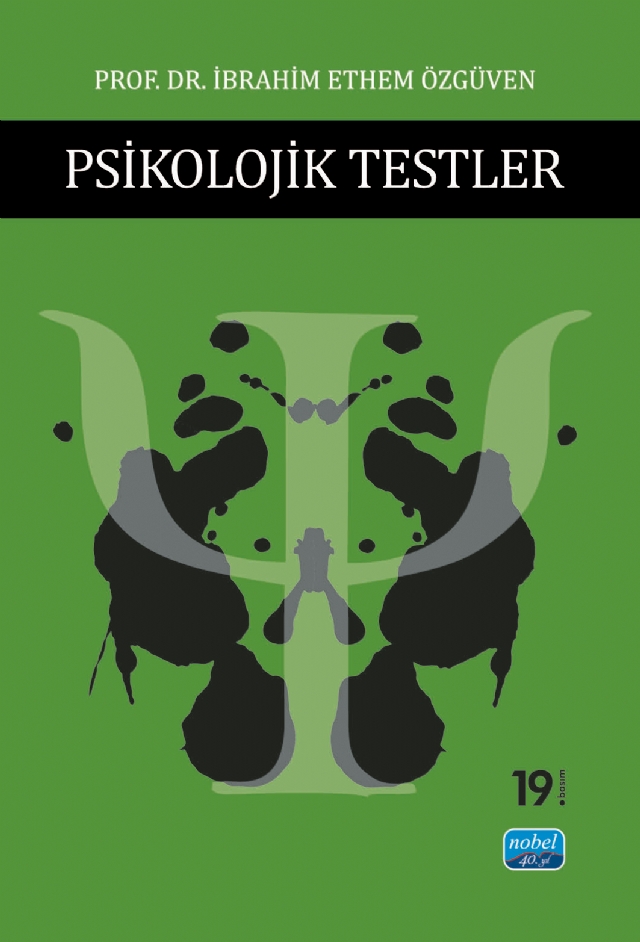
Parallel to the developments in the world, "psychological tests" in our country started as a "translation" movement of tests developed in other countries at the beginning of the current century, and there was no development effort and effort on the tests. In today's sense, writing, testing, applying, doing item analysis, choosing good questions and preparing the posttest, and conducting validity and reliability studies started in the mid-1950s. In the period since the 1950s, important institutions have been established in the fields of measurement technique, psychological tests and test development in our country.
Increasing demand for tests; It has enabled the rapid development of psychology and the branch of psychological tests in our country compared to other branches. Psychological Tests book; He focused on "test development", "appropriate use of psychological tests and appropriate interpretation of the obtained scores", "introducing psychological tests, especially those found in our country".
This book is about psychological tests in undergraduate and partially graduate programs applied in psychology, psychological counseling, psychiatry, assessment and evaluation, program development, child development and education, vocational and technical education, special education, classroom teaching, social services and other related departments of universities. It has been prepared as a “textbook” that can be read.
Increasing demand for tests; It has enabled the rapid development of psychology and the branch of psychological tests in our country compared to other branches. Psychological Tests book; He focused on "test development", "appropriate use of psychological tests and appropriate interpretation of the obtained scores", "introducing psychological tests, especially those found in our country".
This book is about psychological tests in undergraduate and partially graduate programs applied in psychology, psychological counseling, psychiatry, assessment and evaluation, program development, child development and education, vocational and technical education, special education, classroom teaching, social services and other related departments of universities. It has been prepared as a “textbook” that can be read.
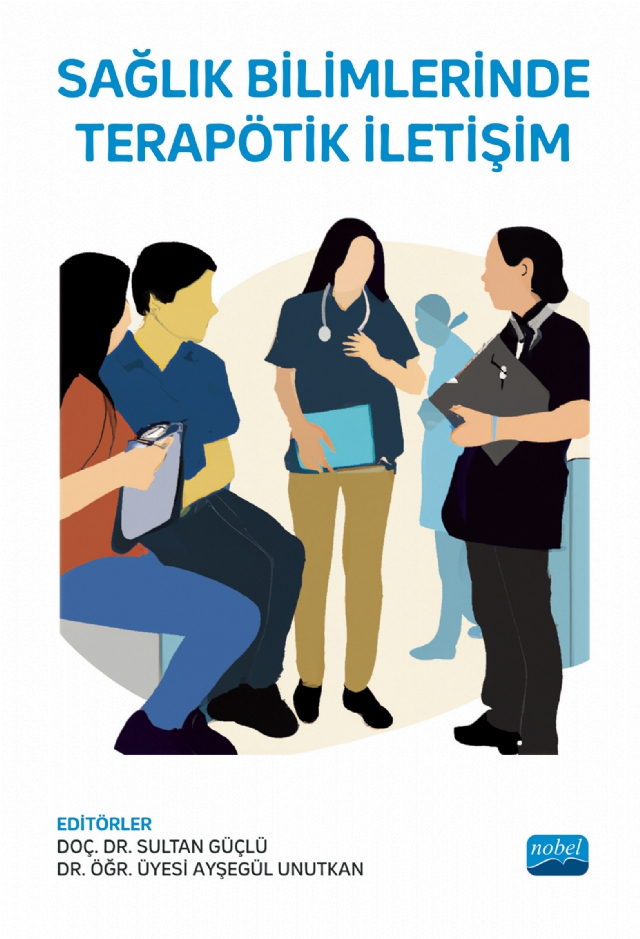
Communication is an indispensable part of life, which is at the heart of any human relationship. Every individual deserves to be treated with dignity and respect. Based on this fact, therapeutic communication is an effective and empathetic communication method, where personal space, privacy, confidentiality and trust are provided, information meets compassion, which can be used to increase the delivery/quality of health services and to increase patient/client satisfaction. Health professionals should know how to communicate with patients/clients and their relatives while evaluating patients/clients; It is very important for the individuals with whom they communicate to realize that they are also human beings with their own values and feelings. This book will be a guide for healthcare professionals and students, who are future healthcare professionals, to develop their therapeutic communication skills by approaching their patients/clients with a holistic perspective.
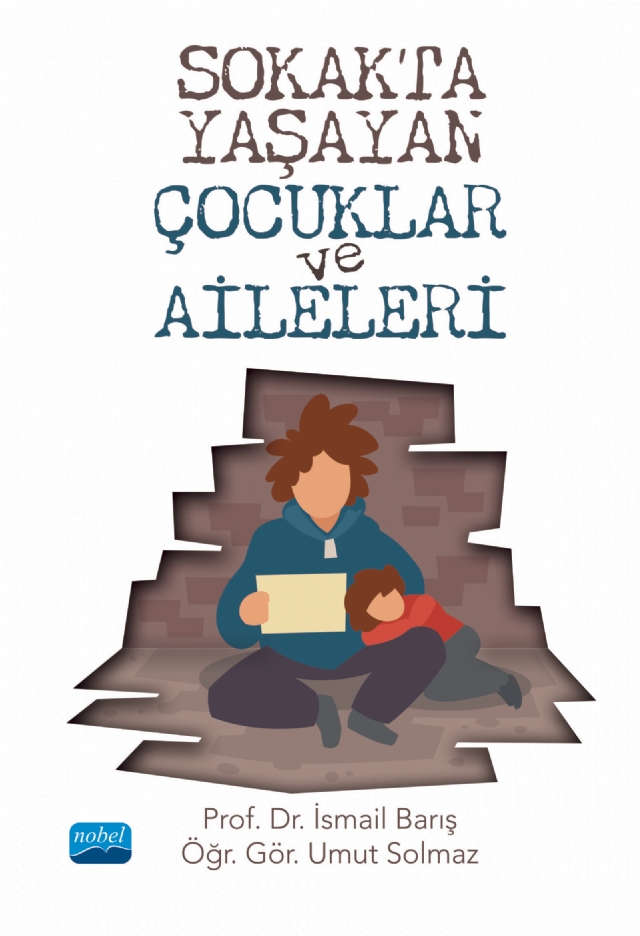
This book it aims to make an important contribution and fill the gap in the literature in terms of defining the children living on the streets who are among the disadvantaged groups, investigating the social work practices for these individuals, and presenting the necessary measures and support to the children living on the street and their families according to the research findings, to policy makers and practitioners.
In this context, the book is divided into five chapters and the topics are covered extensively in the chapters. Based on the understanding that eliminating the negativities of living on the street is among the aims of social work, the issue of children living on the street and their families has been evaluated in the context of social work. The book includes the existing or realized practices within the theoretical context of the issue of children living on the street.
In this context, the book is divided into five chapters and the topics are covered extensively in the chapters. Based on the understanding that eliminating the negativities of living on the street is among the aims of social work, the issue of children living on the street and their families has been evaluated in the context of social work. The book includes the existing or realized practices within the theoretical context of the issue of children living on the street.
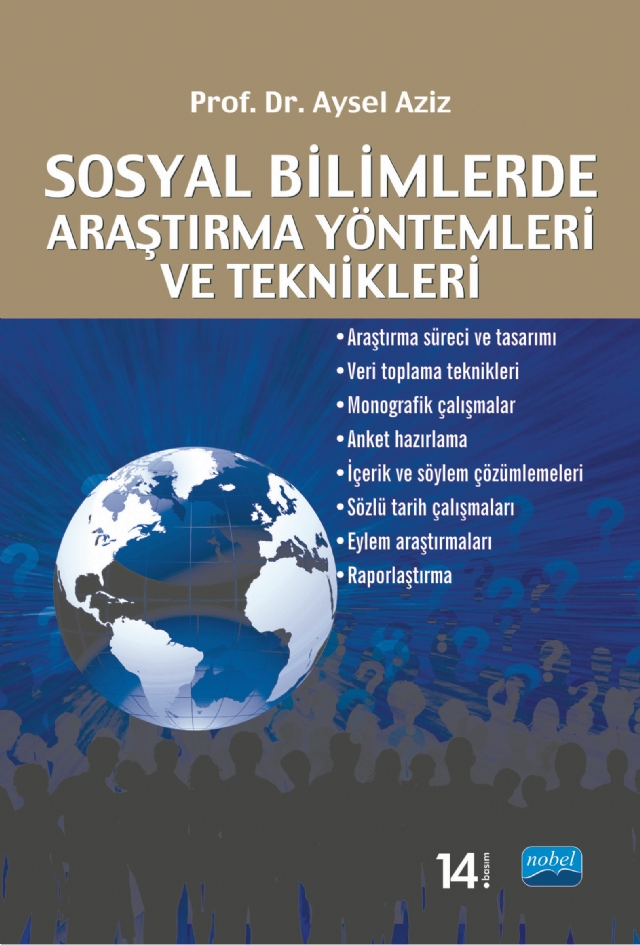
How is research done in the social sciences? The book tries to answer this question from A to Z, starting from the thought stage of the research, explaining what processes it went through, how its design was made, how the data sources related to the research were collected, what observation techniques were available. Among these observation techniques, indirect and direct methods and data collection techniques used in both academic studies and social research are explained. It focuses on the features of preparing a questionnaire (questionnaire), one of the common observation techniques needed in many fields. Monography, content and discourse analysis, which are widely and intensively used as observation techniques, and oral history studies and action research, which are among the direct observation methods that are becoming more and more widespread in different disciplines, are also included. In the last part of the research, the rules for writing the findings and results of a research are explained.
In the "Appendix" part of the research, there are updated examples of data collection techniques described in the book and jargon definitions related to the field.
In the "Appendix" part of the research, there are updated examples of data collection techniques described in the book and jargon definitions related to the field.
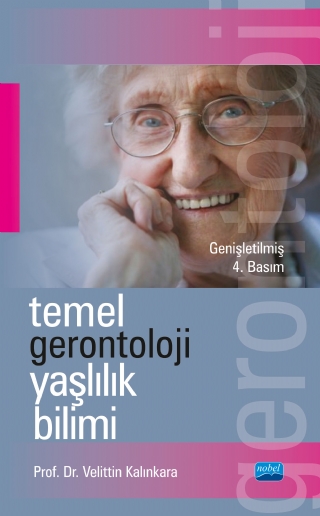
Our elderly world has also started to age demographically. Although the phenomenon of aging is mostly accepted as a problem of developed countries, it is now an issue that should be emphasized as much as developed countries. Since the beginning of the twentieth century, there has been a significant increase in the number and proportion of the elderly as a result of the improvement of health conditions, decrease in fertility and increase in quality of life with the effect of industrialization. This increase; It has caused rapid and important changes in family and community life, changed social institutions, behavior and values, and affected the status and functions of the elderly. In this process, while the family structure and social structure changed, the readiness of the family and the institutions did not change in the same direction. While the improvement of living conditions ensures longevity, the economic, social and health-related problems of longevity are generally ignored.
This book will be useful for individuals to equip themselves with basic information about aging and to develop an attitude towards solving problems. It is a source book especially for academicians working in health and social fields, students studying in the field and those who are interested in the subject.
This book will be useful for individuals to equip themselves with basic information about aging and to develop an attitude towards solving problems. It is a source book especially for academicians working in health and social fields, students studying in the field and those who are interested in the subject.
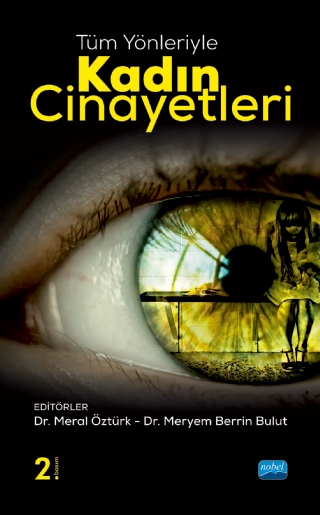
The book is a work that includes the scientific studies of academics from many different disciplines on femicide, and in this sense, it is the first study in its field in Turkey. In the book, femicide has been discussed from various aspects, and the subject has been tried to be examined from perspectives such as social work, sociology, psychology, forensic sciences and religious sciences. Of course, we are aware that it is difficult to explain a very important issue such as femicide in a book with all its aspects, but we have done this study hoping that this work will be a start in order to increase the number of studies in this direction.
The book is dedicated to all women in Turkey, whose names are unknown and who fell victim to male terror for various reasons, along with symbolic names such as Emine Yılmaz, Özgecan Aslan, Güldunya Ceremony and Ayşe Paşalı. We hope that this book will be useful to all people working in the field, especially decision makers, and thus contribute to the prevention of femicide.
The book is dedicated to all women in Turkey, whose names are unknown and who fell victim to male terror for various reasons, along with symbolic names such as Emine Yılmaz, Özgecan Aslan, Güldunya Ceremony and Ayşe Paşalı. We hope that this book will be useful to all people working in the field, especially decision makers, and thus contribute to the prevention of femicide.
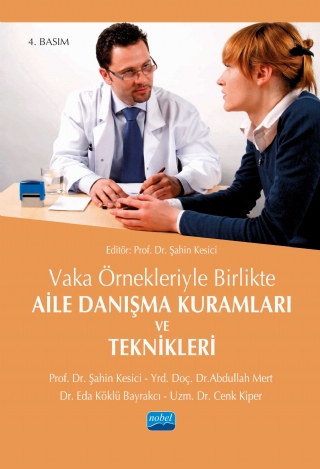
This book; It covers family theories and case examples that have an important place in family counseling.
The book provides information about the theoretical background of the concept of family counseling for its readers. In the first part of the book, family counseling based on people's emotional functions and behaviors, called “Murray Bowen's Family Systems Theory” or “Bowen Therapy”, is described. “Imago Spouse” is chosen by the individual to treat unresolved problems and “Marriage is a kind of cure.” "Imago Therapy", as a family therapy theory developed by Hendrix and his wife, is also covered in the second chapter. In the third chapter, Satir's theory, which defines parents as “the conscious or unconscious working architects of their existing families by bringing together what they have learned from their root families” is discussed. The theory and techniques of "Systemic Family Therapy", also known as the Milan group, are also discussed in the fourth chapter.
.
The book provides information about the theoretical background of the concept of family counseling for its readers. In the first part of the book, family counseling based on people's emotional functions and behaviors, called “Murray Bowen's Family Systems Theory” or “Bowen Therapy”, is described. “Imago Spouse” is chosen by the individual to treat unresolved problems and “Marriage is a kind of cure.” "Imago Therapy", as a family therapy theory developed by Hendrix and his wife, is also covered in the second chapter. In the third chapter, Satir's theory, which defines parents as “the conscious or unconscious working architects of their existing families by bringing together what they have learned from their root families” is discussed. The theory and techniques of "Systemic Family Therapy", also known as the Milan group, are also discussed in the fourth chapter.
.
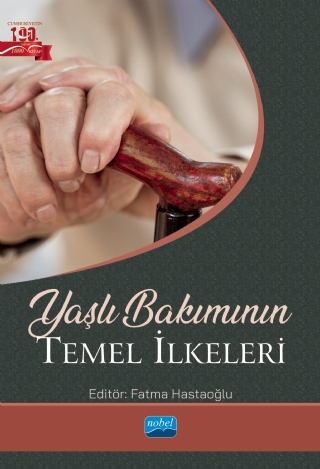
Old age is a developmental process in which important changes are experienced in terms of biopsychosocial. Although the World Health Organization (WHO) considers those over the age of 65 to be elderly, all individuals in old age do not constitute a homogeneous group. In other words, each elderly person may have different needs or occupations. In this sense, elderly care is a special concept that requires a holistic approach. With the increasing elderly population, elderly care has become a very important concept.
The increase in the proportion of the elderly in the total population means that the number of elderly individuals in need of professional care also increases. In this context, the need for personnel who will serve as intermediate staff has increased as well as physicians / nurses who can provide professional treatment and care for the elderly.
In addition to the definitions of the elderly and old age, this book contains the basic concepts in elderly care and is a source book on the care of the elderly. Hoping to be a guide in the care of the elderly…
The increase in the proportion of the elderly in the total population means that the number of elderly individuals in need of professional care also increases. In this context, the need for personnel who will serve as intermediate staff has increased as well as physicians / nurses who can provide professional treatment and care for the elderly.
In addition to the definitions of the elderly and old age, this book contains the basic concepts in elderly care and is a source book on the care of the elderly. Hoping to be a guide in the care of the elderly…
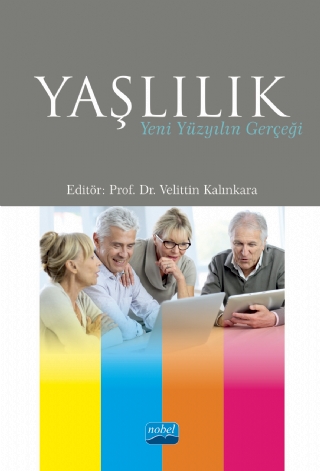
In the twenty-first century, demographic change is taking place that has never happened in world history, and no country is outside this scope. While increasing life expectancy and lowering birth rates are considered great achievements in modern science and health care, their significant impact on future generations is underrated. No matter how long we live, it becomes necessary for every country to rethink and restructure its social and economic institutions in order to ensure the well-being of individuals when working life ends. The aging of societies can affect economic growth and the sustainability of families, the ability of states and societies to provide resources for older people, and many other issues, including international relations. Despite scientific evidence, the importance and global implications of population aging are not yet fully understood. There is a need to raise awareness not only of global aging issues, but also of the importance of rigorous international scientific research and policy dialogue to help us respond to the challenges and opportunities of an aging world.
This book paints a picture of the impact of the aging population on the economy, society, family and environment. We hope this book, consisting of twenty chapters and contributed by 32 authors, will encourage you to identify the best ways to address dialogue, international studies, and the universal human experience about work, economics, family, communication, landscaping, and behavioral issues. We believe that scientists and every member of the society will be inspired by these suggestions and experiences in planning our own future, the aging and aging policies of the world societies and our country.
This book paints a picture of the impact of the aging population on the economy, society, family and environment. We hope this book, consisting of twenty chapters and contributed by 32 authors, will encourage you to identify the best ways to address dialogue, international studies, and the universal human experience about work, economics, family, communication, landscaping, and behavioral issues. We believe that scientists and every member of the society will be inspired by these suggestions and experiences in planning our own future, the aging and aging policies of the world societies and our country.
